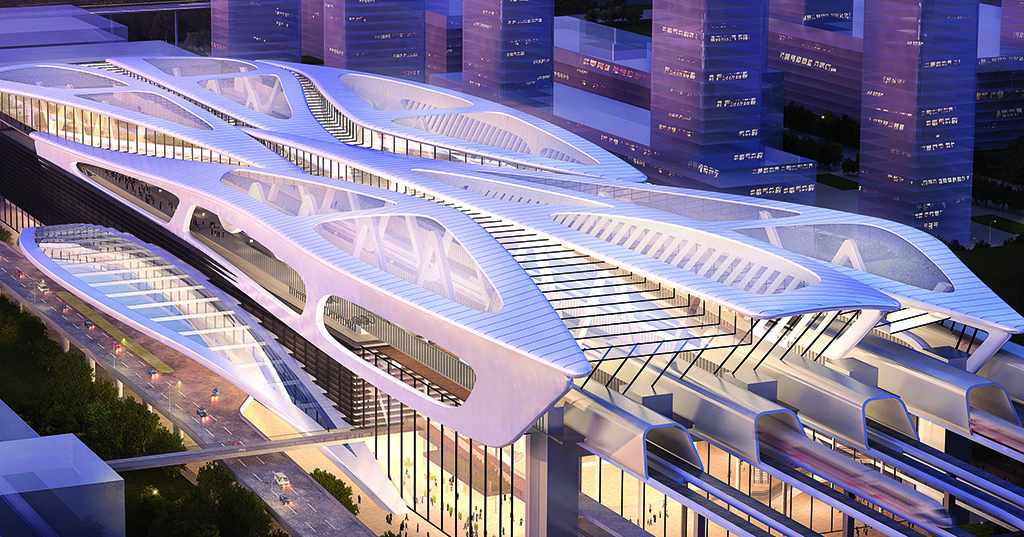If you've kept abreast of local transport news, you would know that construction of the Singapore-Kuala Lumpur High Speed Rail (HSR) has been halted until May 2020.
In return, Malaysia will reimburse Singapore S$15 million in "abortive costs" — we'll explain what this below.
How did we arrive that the sum of S$15 million, and what considerations went into deciding to agree to postpone the project? These questions were answered in Parliament on Monday, October 1.
Questions asked by Members of Parliament:
WP NCMP (East Coast GRC) Dennis Tan Lip Fong:
- What was the basis for the agreed reimbursement of S$15 million by Malaysia to Singapore for abortive costs arising from the two-year suspension of works for the Kuala Lumpur-Singapore High Speed Rail (HSR)?
- What are the major works which will be suspended during the same period?
- Are there any ancillary works or projects relating to or incidental to the HSR which will still continue in the next two years?
[related_story]
PAP MP (Ang Mo Kio GRC) Ang Hin Kee:
- What are the considerations that led to Singapore agreeing to Malaysia's request to postpone construction works of the High-Speed Rail (HSR) project?
- What is to be expected of Malaysia at the end of the suspension period if the project does not proceed eventually?
Khaw Boon Wan's answer: Deferment is actually not provided for in HSR Bilateral Agreement
Minister for Transport Khaw Boon Wan said in his reply that the HSR Bilateral Agreement (BA) between Malaysia and Singapore does not provide for a deferment option. Instead, if any one party wanted to stop the project, the agreement provided for legal compensation.
However, in the interest of "bilateral cooperation", Khaw said the Singapore government decided to accommodate Malaysia's request to defer the project, even though we were completely within our legal rights to turn it down:
"We could have turned down the request to defer the project, enforced our legal rights on termination and sought compensation from Malaysia. This would have been fully in accordance with the BA. After that, if and when Malaysia was again ready to pursue such a project, we could discuss a new BA for it."
Malaysia initially asked for a three- to four-year deferment but after "several rounds of discussions", both sides agreed to suspend the project up to May 31, 2020 (two years from the formation of the new Malaysian government).
Khaw explained that the current cost estimates would no longer be valid after two years, and that a longer suspension will impact Singapore's development plans for Jurong Lake District, which is the proposed site of Singapore's HSR station.
All HSR works in Singapore are currently being wound down. During the suspension period, no new works for the HSR will be carried out. There will be no further suspension past May 31, 2020.
Abortive costs and project implementation costs
Khaw pointed out that the HSR project has already incurred two types of expenditure: implementation costs and abortive costs.
Implementation costs refer to "costs which (Singapore has) already incurred for work done which will still be useful if and when the Project resumes".
Abortive costs refer to costs which cannot be used for the project if and when it resumes. An example of this is the excavation works, which have to be re-filled for safety and re-excavated again when the project resumes. It also covers contract-breakage costs that the government has to pay to contractors for terminating their contracts early.
Malaysia has agreed to pay Singapore S$15 million to reimburse the abortive costs, payable by end-January 2019.
If Malaysia were to decide not to continue the HSR project after May 31, 2020, Malaysia will further reimburse Singapore for implementation costs incurred up to the suspension date, as per the new agreement signed between Khaw and Malaysian Minister of Economic Affairs Mohamed Azmin.
According to Khaw, Malaysia also requested that both sides discuss ways to reduce the cost of the HSR during the suspension period. The minister noted that while Singapore is not "obliged to accept automatically any proposals offered", the government is open to discussions.
"Fair arrangement" for both governments
Khaw further added that this is a "fair arrangement" for both Singapore and Malaysia:
"It protects Singapore’s interests, while reasonably accommodating Malaysia’s request. It also shows that we can manage our bilateral ties on the basis of mutual respect, and resolve issues amicably in accordance with binding agreements and international law."
He also added that both side recognise the "mutual benefits" of the HSR by improving connectivity and catalysing further economic cooperation.
Top image is an artist impression of the Singapore HSR Terminus.
If you like what you read, follow us on Facebook, Instagram, Twitter and Telegram to get the latest updates.
